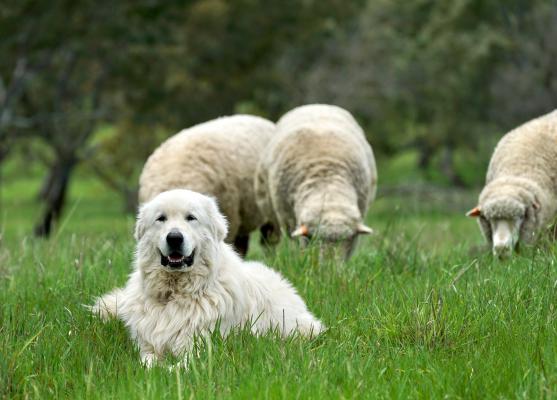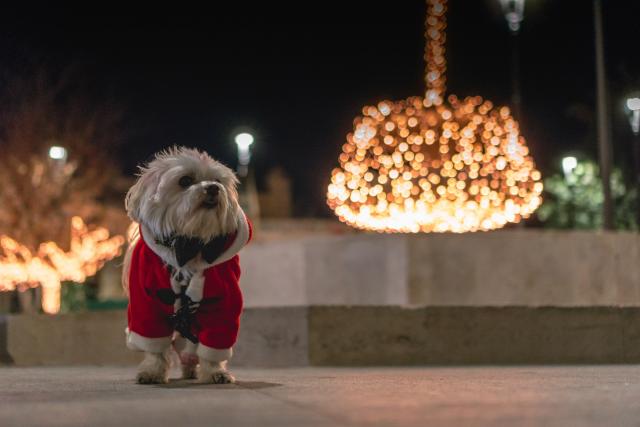Two special dogs trained at Werribee Open Range Zoo are helping to bring a critically endangered native species back from extinction.
Eastern barred bandicoots were once widespread across the grassy woodlands of southwest Victoria, but extensive habitat degradation and the spread of introduced predators following European settlement resulted in the bandicoot population plummetting.
In a collaborative research trial between Zoos Victoria and the University of Tasmania, 20 bandicoots from a captive breeding program were last month released into a National Trust of Australia conservation reserve near Skipton, in the state’s western district.
The bandicoots are under the protection of two guardian dogs who trained at Werribee Zoo, as part of a research trial.
Zoos Victoria’s Guardian Dog co-ordinator David Williams said the pair of maremma dogs – a large, territorial breed – spent four years training for the role.
“We’ve trained the dogs to leave the bandicoots alone, and instead bonded the dogs to protect a flock of sheep,” Mr Williams said.
“The dogs are not bonded directly to the bandicoots as they are solitary and nocturnal – so they do not flock.
“However, sheep do flock, and in the Skipton reserve the sheep can eat grass, bandicoots can live in the grassland, and all three species can share the same habitat.”
A team of scientists and conservationists is tracking and monitoring the movements of both the bandicoots and the dogs, as maremmas actively seek to deter predatory foxes away from the site.
The conservation reserve at Skipton is equipped with 35 remote wildlife cameras and both guardian dogs are fitted with GPS trackers.
Mr Williams said the research trial’s key measure of success would be the successful establishment of self-sustaining populations of bandicoots, first at Skipton and then at other sites in western Victoria.







